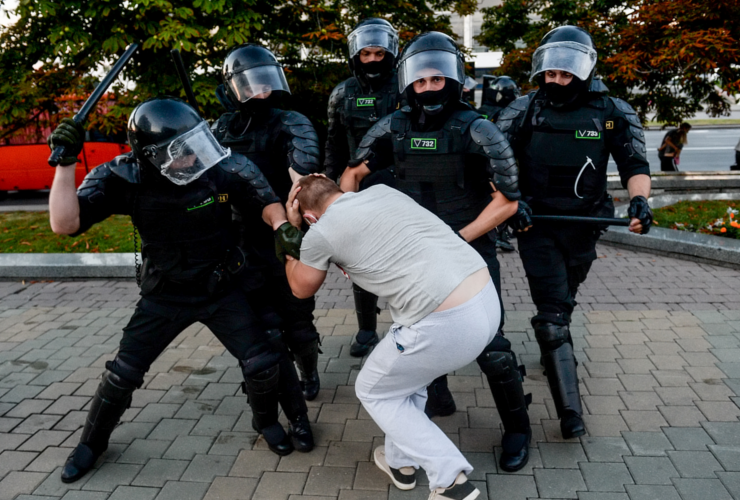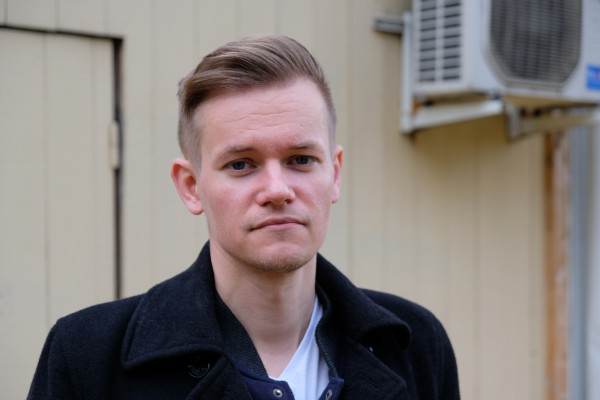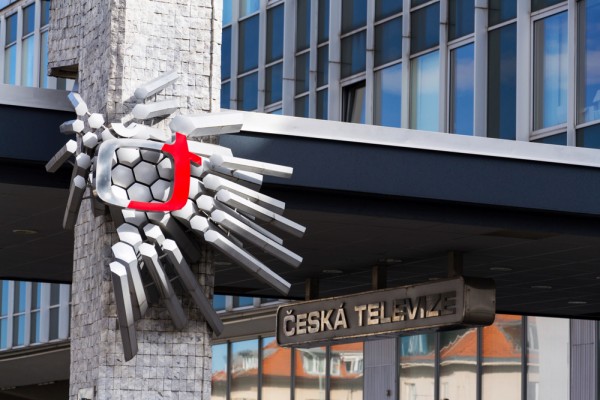The International Press Institute (IPI), a global network of editors, media executives and leading journalists for press freedom, today called on authorities in Belarus to stop all attacks on journalists covering protests across the country following a disputed presidential election on August 9.
Protesters took to the streets in nine cities across the country after preliminary results gave five-term incumbent President Alyaksandr Lukashenka – who has ruled Belarus with an iron fist since 1994 – a commanding lead of 80 percent. Meanwhile, the main opposition candidate, Svyatlana Tsikhanouskaya, whose rallies had attracted tens of thousands of supporters, received just 9.9 percent, prompting accusations of widespread electoral fraud.
Numerous reporters have been subject to assault or detention while covering protests in Minsk and other cities.
Riot police reportedly used tear gas, stun grenades and water cannons to disperse the crowds, and have also targeted journalists. Nasha Niva journalist Natalia Lubnevskaya was injured after being hit by a rubber bullet, while Ukrainian Associated Press journalist Mstyslav Chernov was severely beaten, suffering a concussion according to the National Union of the Journalists of Ukraine.
Meduza correspondent Maxim Solopov was also attacked by authorities in Minsk before losing contact with his newsroom. In his last conversation with his editors around 1AM, Solopov reported from Valadarskaha Street, where he said police had trapped demonstrators, and fired tear gas violently. According to another journalist onsite, Solopov was beaten, arrested and put in a police van. Meduza editors were unable to track him down in any police station, detention center or hospital in Minsk since.
According to the Belarusian Association of Journalists (BAJ), at least 15 journlaists have been injured or detained or gone missing: Tatiana Belashova, Elena Shcherbinskaya, and Vitaly Dubik, Dmitry Solovyov, Vladimir Lunev, Evgeny Nikolayevich, Jan Roman, Ilya Pitalev, Yegor Martinovich, Maxim Shved, Tatiana Kapitonova, Konstantin Prydybaylo, Marina Molchanova and Yevgeny Glagolev-Vaskovich. BAJ continues to update the growing number of violations.
Several journalists working for foreign outlets, such as DW’s Alexander Burakov, and Dozhd’s Vasily Polonsky, Vladimir Romensky and Nikolai Antipov have also been targeted and in some cases ordered to leave the country. Russian journalist Semyon Pegov, who was last seen dragged by Belarusian authorities while unconscious, faces five to eight years in jail for “destabilizing the situation”, while Sputnik Belarus journalist Yevgeny Oleynik was released after being beaten and detained.
“Authorities in Belarus must cease all attacks on the press and any journalists detained must be swiftly released”, IPI Deputy Director Scott Griffen said. “Journalists have a right to cover these protests and must be able to do so safely and without fear of retaliation from security forces. We also urge Belarus’s international partners to condemn violence against the press.”
President Lukashenko, often referred to as Europe’s last dictator, has been in power for 26 years. IPI has previously reported on the country’s declining press freedom, highlighting 2017 as a particularly difficult year: 101 journalists were detained during a media crackdown, 69 journalists were fined for working “illegally” and independent channels were forced into legal proceedings.
Earlier this year, four journalists have been jailed for reporting on opposition rallies, while several violations linked to COVID-19 have also been monitored.
Public anger towards Lukashenko’s government grew due to its cynical response to the coronavirus.



